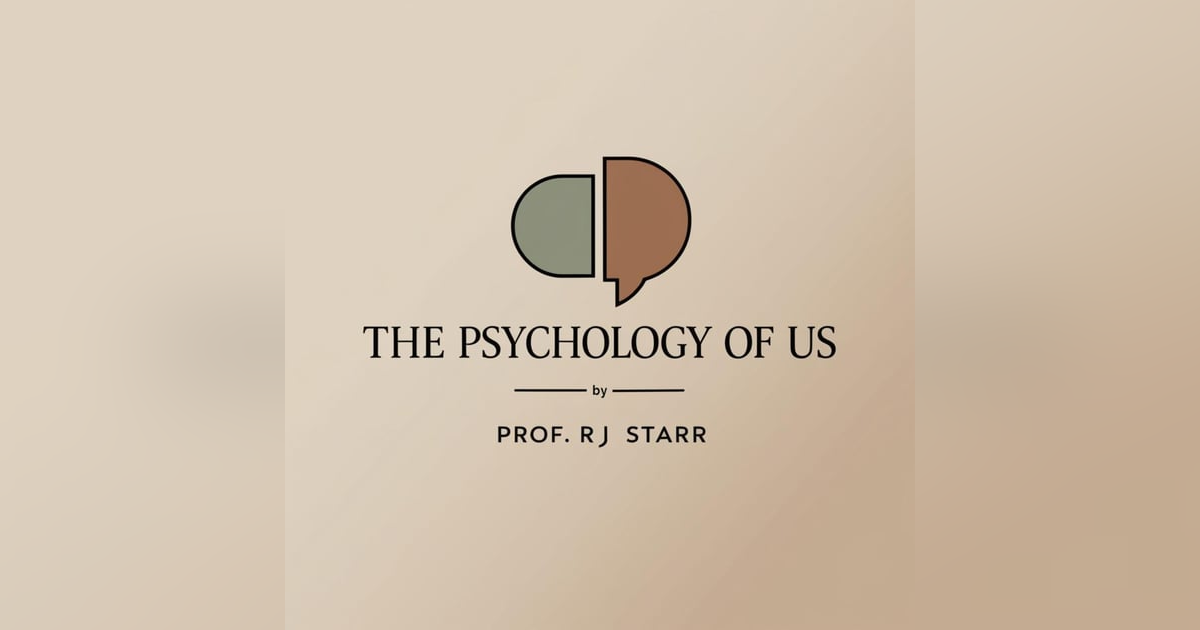Their View, Your Mirror: The Psychology of Envy

We don’t like to talk about envy.
It’s one of those emotions that feels petty, even shameful — something we’d rather deny than admit. Most people will tell you they’re “happy” for someone else, maybe even “inspired” by their success. But behind those polite words, there can be something sharper: a quiet mental inventory of what we don’t have, what we haven’t done, and where we think we’re falling behind.
In this episode of The Psychology of Us, we’re pulling envy out of the shadows and into plain view — not to judge it, but to understand it. Because envy isn’t random. It’s a predictable byproduct of how our brains are wired to compare, measure, and place ourselves in relation to others. In an age where we see hundreds of curated lives in our feed every day, those ancient instincts can turn someone else’s joy into a mirror we didn’t ask for, reflecting back our own perceived shortcomings.
We start with a vivid scene: a friend’s trip to Greece — the whitewashed cliffs of Santorini, the deep blue of the Aegean, the elegance of candlelit dinners by the sea. It’s breathtaking. And yet, the mind doesn’t just take in the beauty; it begins asking questions that sound a lot like envy. How did they afford this? How did they meet that person? Why are they living that life while I’m here? In seconds, their moment has been rewritten in our minds as a commentary on our own.
From there, we break envy down into four parts:
Naming what we don’t name — stripping away the euphemisms and owning the truth about how often envy shows up in subtle ways, even alongside genuine happiness for someone.
The mechanics of envy — exploring social comparison theory, the self-referential reflex, and how mirror neurons can turn shared joy into scarcity-fueled discomfort.
The emotional costs — how envy distorts perception, erodes relationships, and quietly drains our sense of enoughness.
From envy to empathic joy — practical, grounded strategies to interrupt the comparison loop, stay fully present in someone else’s joy, and cultivate the rare skill of celebrating without self-reference.
You’ll learn why envy is so common, why it often hides under layers of politeness, and why it’s not a moral flaw but a mental reflex in an environment our brains weren’t built for. More importantly, you’ll learn how to notice it, name it, and shift it into something that actually strengthens connection rather than eroding it.
By the end of the episode, we circle back to that balcony in Greece — but this time, we imagine seeing it without making it about us. Just letting it be theirs. Because the truth is, when we stop turning every beautiful thing into a mirror, we get to live in a world where beauty enriches us all, even if it never belongs to us directly.
Whether you’ve struggled with envy in obvious ways or only in the quiet moments you’d never admit out loud, this conversation will give you language, perspective, and tools to handle it differently. You’ll leave not with guilt for feeling envy, but with clarity about what it’s telling you — and the freedom to choose what you do next.
Their view doesn’t have to be your mirror.
It can just be their view.
And you can be glad it exists.





